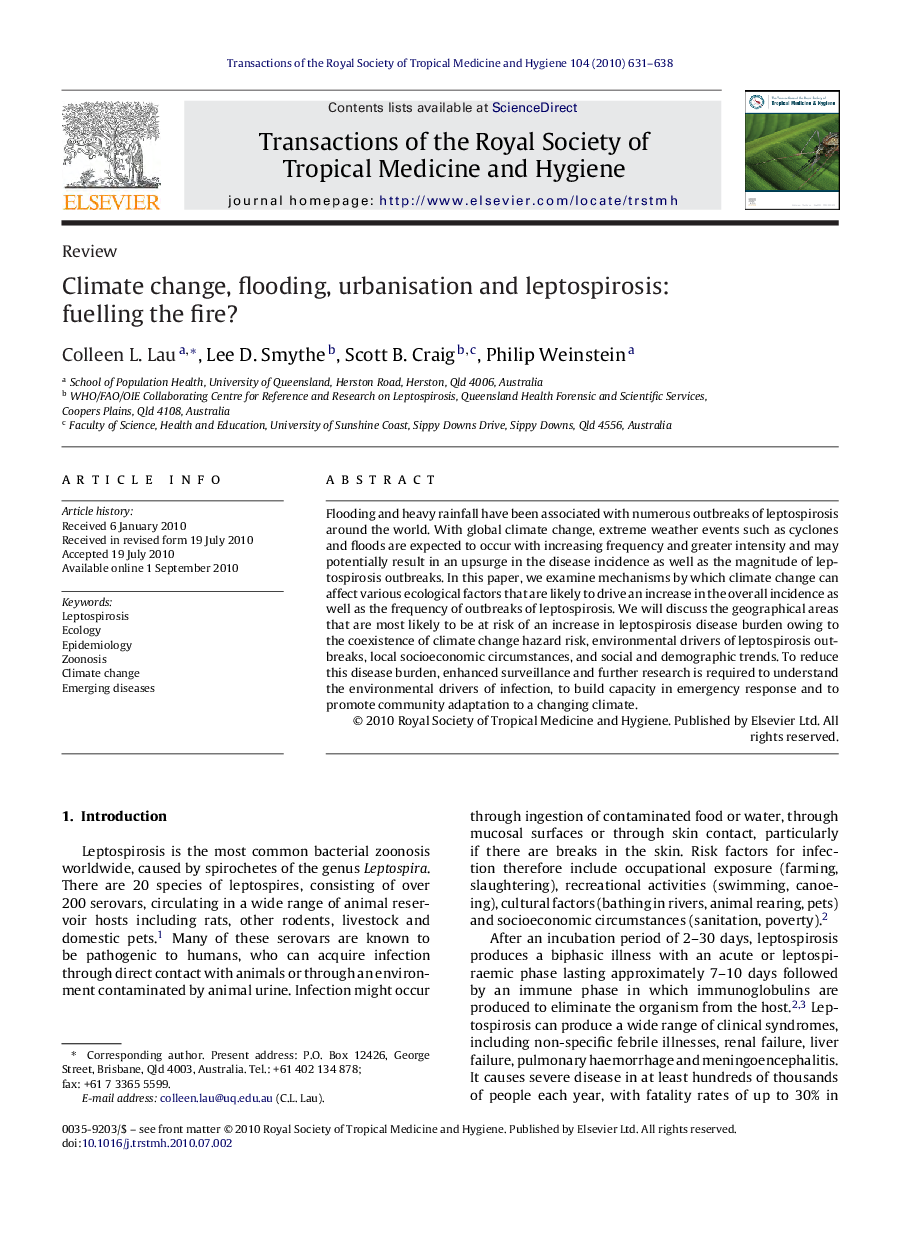| Article ID | Journal | Published Year | Pages | File Type |
|---|---|---|---|---|
| 3420600 | Transactions of the Royal Society of Tropical Medicine and Hygiene | 2010 | 8 Pages |
Abstract
Flooding and heavy rainfall have been associated with numerous outbreaks of leptospirosis around the world. With global climate change, extreme weather events such as cyclones and floods are expected to occur with increasing frequency and greater intensity and may potentially result in an upsurge in the disease incidence as well as the magnitude of leptospirosis outbreaks. In this paper, we examine mechanisms by which climate change can affect various ecological factors that are likely to drive an increase in the overall incidence as well as the frequency of outbreaks of leptospirosis. We will discuss the geographical areas that are most likely to be at risk of an increase in leptospirosis disease burden owing to the coexistence of climate change hazard risk, environmental drivers of leptospirosis outbreaks, local socioeconomic circumstances, and social and demographic trends. To reduce this disease burden, enhanced surveillance and further research is required to understand the environmental drivers of infection, to build capacity in emergency response and to promote community adaptation to a changing climate.
Related Topics
Life Sciences
Immunology and Microbiology
Applied Microbiology and Biotechnology
Authors
Colleen L. Lau, Lee D. Smythe, Scott B. Craig, Philip Weinstein,
